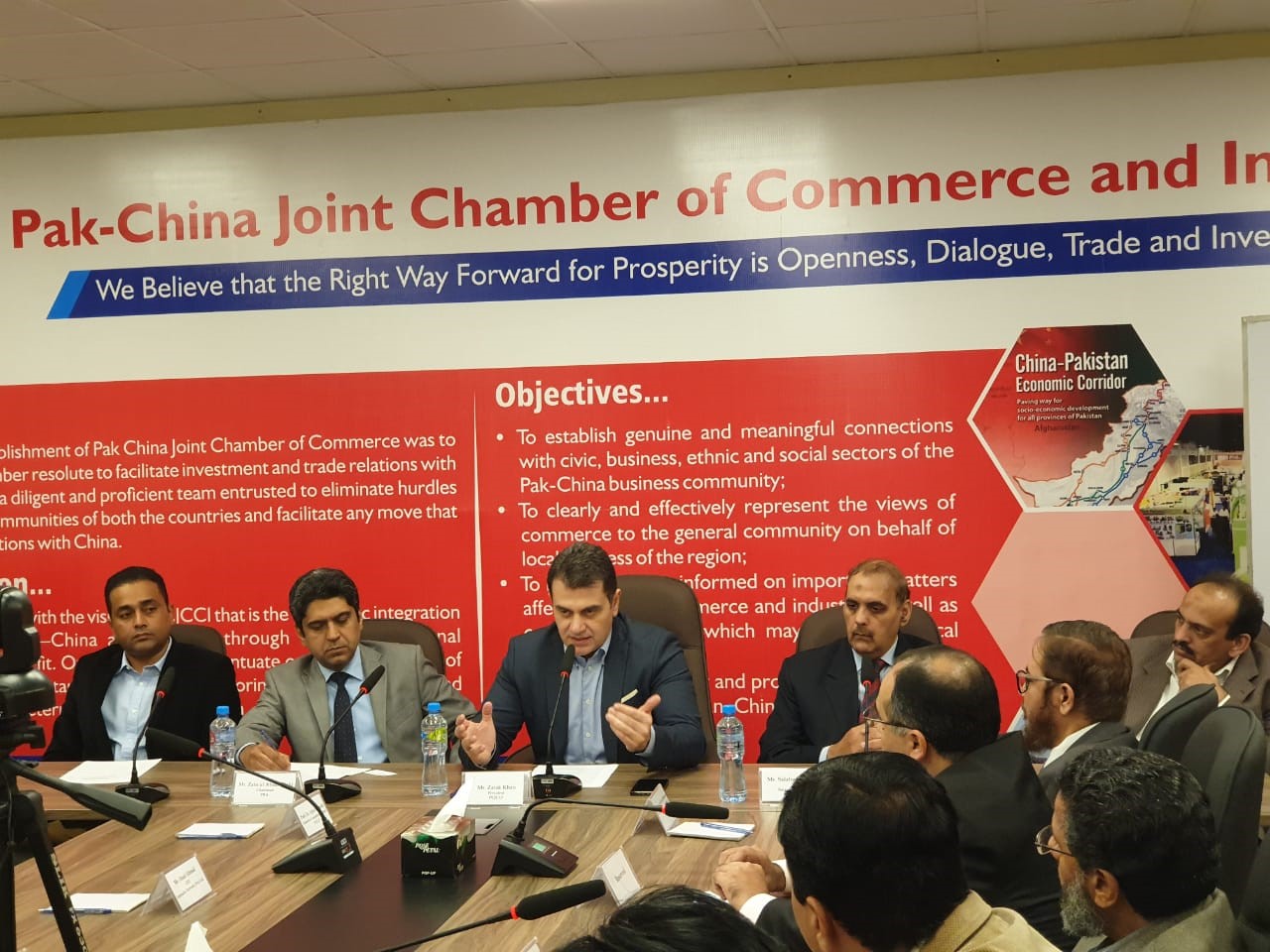Companies Pay 16% Tax for Punjab’s Uplift, PRA’s Chairman Tells Seminar
LAHORE– Every company in Punjab should pay 16 per cent of their sales to the Punjab Revenue Authority (PRA) to generate revenues for the well-being of the inhabitants of the province, says Zain ul Abidin Sahi, the head of the premier revenue collection agency in the province.
He was speaking at a seminar organized by the Pakistan China Joint Chamber of Commerce and Industry (PCJCCI) on “The Role of PRA and Awareness among Business Community regarding tax on services” on Wednesday.
The seminar aimed to inculcate tax awareness in the business community as well as among young entrepreneurs.
Zain ul Abidin Sahi further said the Punjab government had established a semi-autonomous organization named as the Punjab Revenue Authority (PRA) to collect and enforce sales tax on services.
It has also enacted the Punjab Sales Tax on Services Act, 2012 in suppression of the Punjab Sales Tax Ordinance, 2000 (as amended from time to time), he said.
Punjab had kept the tax coverage only to 14 categories initially and now it is covering 68 services under the repeated ordinance. The extended categories cover hotels, restaurants, beauty salons, construction, courier service, dress designers, doctors, telecommunication etc, he added
He further told the private and public withholding tax system was very important for awareness in the business community, who did not kept adequate information regarding this particular section.
Every company has to pay 16% sales tax of their part to PRA for generating revenue for well-being of the Punjab.
In his welcome address, Zarak Khan, the President PCJCCI said the provincial tax systems in Pakistan are more or less based on a colonial legacy.
The dawn of 21st century has seen a visible change in the governance patterns at national as well as at sub-national levels especially in the developing countries, he said adding that reforms in tax regimes had been initiated as an important component of overall fiscal-economic reforms.
“In this regard, Pakistan has also suitably modified its fiscal federalism, under which public service responsibilities of the provincial governments have been expanded along with creation of several prudent opportunities for the Provinces to mobilize their own resources.”
Zarak Khan assured of the efforts to make PCJCCI an effective bridge between business community and the government.
He said that PCJCCI was keen to setup Tax facilitation centre for the Chinese business community working in Pakistan.
Moazam Ghurki, the Senior Vice President PCJCCI, urged traders and businessmen to know about new sales tax on services two and a half years ago because of PRA’s field efforts.
“We should respect the PRA’S work because they are trying to generate revenue for the prosperity of Punjab.”
Salahuddin Hanif, the Secretary General PCJCCI said the chamber had planned this session to spread awareness among the business community and young entrepreneurs regarding the working of the PRA.—PRESS RELEASE

